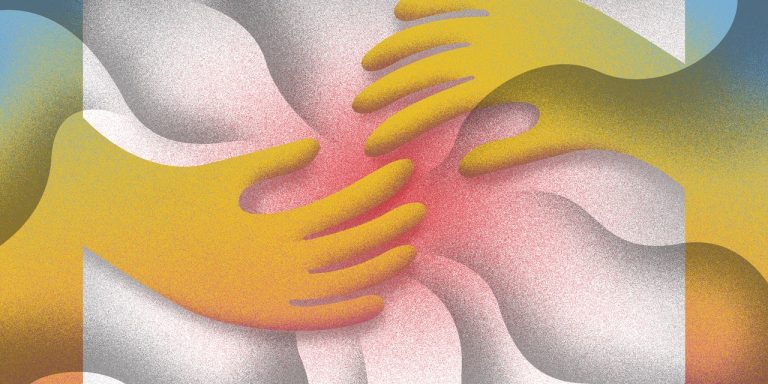
If you recently received a Crohn’s diagnosis, it’s understandable to feel a bit overwhelmed by the idea of having a form of inflammatory bowel disease (IBD). But learning about what comes next can help you take important steps to prioritize your physical and mental well-being.
Depending on how long you’ve experienced symptoms, you’re probably aware that they tend to feel nonexistent some days (periods of remission) and pretty debilitating on others (periods of relapse or recurrence). Crohn’s disease flare-ups are tough to predict—but they’re to be expected for anyone living with the condition. “[A flare-up] is the time period when the inflammation of Crohn’s becomes active,” Aniruddh Setya, a board-certified gastroenterologist with KIDZ Medical Services in Florida, tells SELF.
We won’t sugarcoat it: Getting through a flare-up sucks. Crohn’s disease symptoms like abdominal pain and cramping, heavy fatigue, and nonstop diarrhea can range from uncomfortable to straight-up painful, and they tend to get in the way of day-to-day life.
Crohn’s is a complex autoimmune condition with no single cause or cure, but there’s some hopeful news here: There are many effective treatments that can help you feel better.1 You’ll also want to learn a bit more about what may cause your symptoms to resurface, so you can do your best to prevent them. Here’s what you should keep in mind if you’re figuring out Crohn’s flare-ups for the first time.
What happens during a Crohn’s flare-up?
“During a flare, your disease is active, meaning there is inflammation in the gut being driven by your immune system,” Matilda Hagan, board-certified gastroenterologist and medical codirector at The Center for Inflammatory Bowel and Colorectal Disease at Mercy Medical Center in Baltimore, tells SELF.
That inflammation drives the recurrence of symptoms, which can persist for months to years without effective treatment, Douglas Nguyen, a board-certified gastroenterologist with Providence Mission Hospital in Southern California, tells SELF. Other times, symptoms come on quickly and disappear as fast as they show up.
It’s also common to have more severe symptoms during a flare-up, Dr. Nguyen says. This includes gastrointestinal symptoms like worsening abdominal pain, urgent bowel movements, or rapid weight loss, as well as systemic symptoms linked to chronic inflammation like intense eye or joint pain. All of these changes can also take a toll on you mentally and emotionally.
In one 2019 study, researchers from Northwestern University’s Feinberg School of Medicine tried to gain a better understanding of how people with Crohn’s describe their flare-ups.2 Here are a few responses that stood out to them:
- “I am tired and generally homebound and often stuck in bed and near a bathroom.”
- “The most impactful part is the lack of energy. I generally try to maintain my daily schedule, but by the evening I’m too exhausted to really do anything.”
- “It makes the simplest tasks seem impossible. My self-worth hits rock bottom.”
- “My family is affected by my IBD as they are constantly worrying about me, making sure I am feeling okay, and trying to help me fight back.”
- “I can’t do things I want to do.”